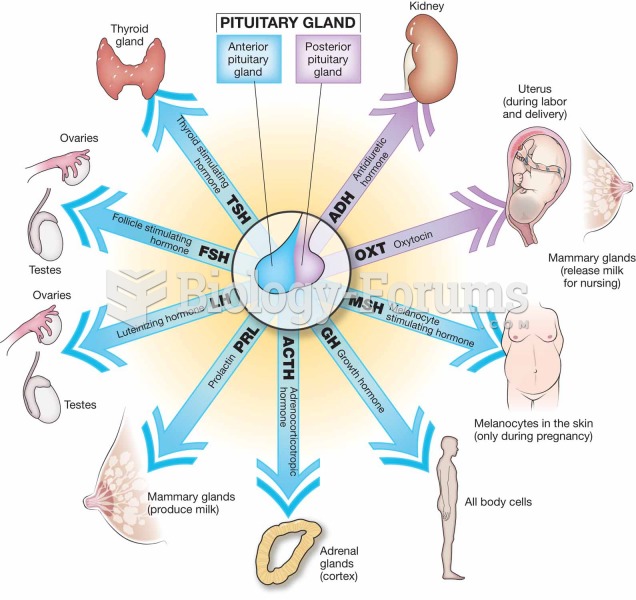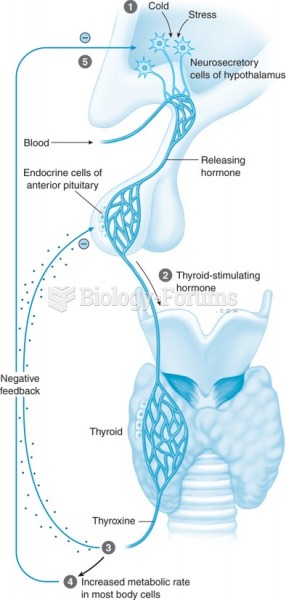|
|
|
In women, pharmacodynamic differences include increased sensitivity to (and increased effectiveness of) beta-blockers, opioids, selective serotonin reuptake inhibitors, and typical antipsychotics.
One way to reduce acid reflux is to lose two or three pounds. Most people lose weight in the belly area first when they increase exercise, meaning that heartburn can be reduced quickly by this method.
Famous people who died from poisoning or drug overdose include, Adolf Hitler, Socrates, Juan Ponce de Leon, Marilyn Monroe, Judy Garland, and John Belushi.
Pregnant women usually experience a heightened sense of smell beginning late in the first trimester. Some experts call this the body's way of protecting a pregnant woman from foods that are unsafe for the fetus.
Approximately one in three babies in the United States is now delivered by cesarean section. The number of cesarean sections in the United States has risen 46% since 1996.
 Establishing a caring and trusting relationship helps the client come to terms with a terminal illne
Establishing a caring and trusting relationship helps the client come to terms with a terminal illne
 On May 15, 1916, after deliberating for one hour, an all-white jury in Waco, Texas, found seventeen-
On May 15, 1916, after deliberating for one hour, an all-white jury in Waco, Texas, found seventeen-




